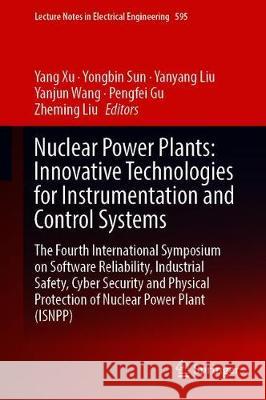Nuclear Power Plants: Innovative Technologies for Instrumentation and Control Systems: The Fourth International Symposium on Software Reliability, Ind » książka
topmenu
Nuclear Power Plants: Innovative Technologies for Instrumentation and Control Systems: The Fourth International Symposium on Software Reliability, Ind
ISBN-13: 9789811518751 / Angielski / Twarda / 2020 / 571 str.
Nuclear Power Plants: Innovative Technologies for Instrumentation and Control Systems: The Fourth International Symposium on Software Reliability, Ind
ISBN-13: 9789811518751 / Angielski / Twarda / 2020 / 571 str.
cena 602,40
(netto: 573,71 VAT: 5%)
Najniższa cena z 30 dni: 578,30
(netto: 573,71 VAT: 5%)
Najniższa cena z 30 dni: 578,30
Termin realizacji zamówienia:
ok. 16-18 dni roboczych.
ok. 16-18 dni roboczych.
Darmowa dostawa!
Kategorie:
Kategorie BISAC:
Wydawca:
Springer
Seria wydawnicza:
Język:
Angielski
ISBN-13:
9789811518751
Rok wydania:
2020
Wydanie:
2020
Numer serii:
000367340
Ilość stron:
571
Waga:
0.99 kg
Wymiary:
23.39 x 15.6 x 3.17
Oprawa:
Twarda
Wolumenów:
01
Dodatkowe informacje:
Wydanie ilustrowane











